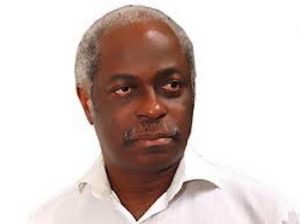Brazilian native leader fights off coronavirus to take on the President

“We have a very strong spirituality, so she was there and took my hand and told me that I will get out of this, to take care of my people,” he said.Five days after his mother’s passing, his father died, too. Tseremeywá, his head shaved in a traditional display of mourning, hopes he can fulfill his mother’s instruction to lead his Xavante people out of Covid-19.Now recovering from his own battle with the coronavirus, Tseremeywá’s first step was to try to get his people to stop listening to Brazil’s President Jair Bolsonaro.”I would like Jair Bolsonaro to stop talking stupid nonsense. The doctors have to prescribe, not the President,” Tseremeywá tells me over a video call from his home in the Brazilian state of Mato Grosso. “With this fascist, anti-indigenous, anti-poor government, it did not take prevention seriously. It did not prepare, ignoring that the government is by the people, for the people.” Bolsonaro downplayed the power of the coronavirus for months, deriding it as a “little flu” and refusing to wear a mask in public even when it was encouraged by his own health ministers and ordered by a judge.The President became Brazil’s most famous Covid-19 patient when he revealed he tested positive last week. At the weekend, he was seen walking with a small group in the sunshine outside the presidential palace in Brasilia. He also took to Twitter with a post he titled “A time of truth.”His thread made no mention of the more than 72,000 dead and nearly 2 million infections, second only to the US, but instead focused on the economy.”Millions of jobs destroyed, tens of millions without income and a country on the brink of recession,” he tweeted as he called for families to “depoliticize” the pandemic after so much “misinformation was used as a weapon.”A century ago, when British explorer Percy Fawcett disappeared in the thick jungle of Mato Grosso searching for the Lost City of Z, Tseremeywá’s Xavante had this edge of the Amazon to themselves.Even today, they had hoped that the coronavirus would stay away from Xavante territory, Lucio Terowa’a, secretary of the Federation of Indigenous Peoples and Organizations of Mato Grosso, told CNN earlier.But with the area now surrounded by cattle ranches and massive farms, many of which supply soybeans to the United States and China, there was no avoiding the outside world and its pandemic.It was a soybean trucker who unwittingly brought the coronavirus to this region before dying. Once it touched the indigenous people, the virus burned through a population already struggling with vulnerable immune systems, diabetes, deep mistrust of the outside world and a way of communal living that makes social distancing nearly impossible. Tseremeywá and his people do have an ally in the mayor of Barra do Garças, Roberto Angelo De Farias, who fears the virus is out of control.”It’s like a bomb,” he said. “Today is 200, tomorrow 1,000, 2,000, 3,000. Because they don’t do isolation, they keep doing their ceremonies from ancient times. And my suggestion for the President, and the minister, and embraced by the deputies and senators, that we would build a field hospital.”According to Brazil’s official numbers, 13,801 of the nation’s 850,000 indigenous people are infected with the coronavirus and 491 have been killed, but given the dire lack of testing, those numbers are unlikely to reflect the true toll.As the pandemic spread, Brazil’s Congress passed a bill that would provide clean water, disinfectant and hospital beds for this country’s 850,000 indigenous natives but those efforts were vetoed by Bolsonaro.So many groups have to rely on charitable neighbors, NGOs or donations from strangers to help flatten their frightening Covid-19 curve.”Our youth are becoming orphans,” says Clarêncio Urepariwe, now running a campaign to raise enough money to buy oxygen for his Xavante village.”We are not only losing our fathers, but we are becoming orphans of knowledge, of wisdom, of life and culture itself. We are losing our elders and they are taking our way of life with them.”







